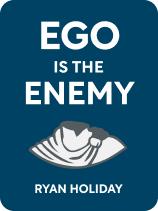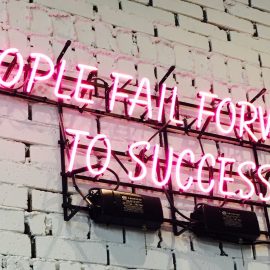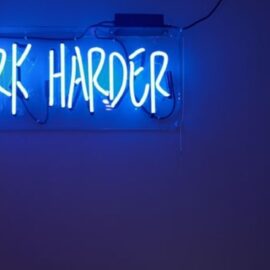

This article is an excerpt from the Shortform book guide to "Ego Is the Enemy" by Ryan Holiday. Shortform has the world's best summaries and analyses of books you should be reading.
Like this article? Sign up for a free trial here .
What is the difference between ego vs self-esteem? Is having a big ego equivalent to having high self-esteem?
The difference between ego vs self-esteem can be explained in terms of the source from which that confidence comes from. Self-esteem is based on true accomplishment, whereas ego is unwarranted and based on nothing but entitlement and imaginary validation.
Read about the difference between ego vs self-esteem, and how inflated sense of ego can sabotage your ability to increase your actual self-esteem.
Ego vs Self-Esteem
From the time we’re children, our parents, teachers, and other adults teach us that having a high self-esteem is the first step to leading a happy and fulfilled life. Further, we’re taught that we’re entitled to have high self-esteem whether or not we’ve accomplished anything that would merit such confidence.
Unfortunately, these beliefs about ego vs self-esteem are mistaken. Self-esteem must be based on true achievement for it to be a positive (and controlled) part of our lives. Confidence based on nothing but validation is imaginary. Such an inflated ego based on insecurities and superficial priorities can only get in the way of happiness and success.
There are two ways inflated ego does this: by distorting your thinking and altering your actions.
Inflated Ego Distorts Your Thinking
Ego can lead to self-aggrandizing thoughts, leading us to spend more mental energy on what we’ll do with success than on how we’ll achieve it.
- Such thoughts shift your focus from your task to your “greatness”: When you’re convinced of your own greatness, you’re more concerned with defending that image than completing your task.
- They also stop you from taking actual action out of a fear that your plan must be perfect. When you have an inflated sense of self-importance, you might be reluctant to embark on a course of action that doesn’t live up to the standards you envision for yourself.
Inflated Ego Alters Your Behavior
Not only does your ego prevent you from thinking about yourself and the world properly, it can also prevent you from doing the right things. Ego can stop you from achieving your goals when it leads you to try to be somebody (earn the recognition that comes with doing a job the way others expect you to) rather than to do something (accomplish things that would elevate your profession or the world at large).
At some point in your career, you’ll have the choice of prioritizing either recognition or accomplishment. If you choose recognition, you’ll end up with a forgettable career in which you check the right boxes, earn the socially approved markers (such as fame or money), but don’t end up achieving anything that affects the world in a lasting, significant way. However, if you choose accomplishment, you may not get the fame or money, but you’ll contribute ideas to the world that will positively affect the lives of people who follow behind you in your career or in life.

———End of Preview———
Like what you just read? Read the rest of the world's best book summary and analysis of Ryan Holiday's "Ego Is the Enemy" at Shortform .
Here's what you'll find in our full Ego Is the Enemy summary :
- How to resist your emotions so you can keep thinking clearly
- Why your passion may be preventing you from achieving your goals
- How to apply the philosophy of Stoicism for success as a leader






